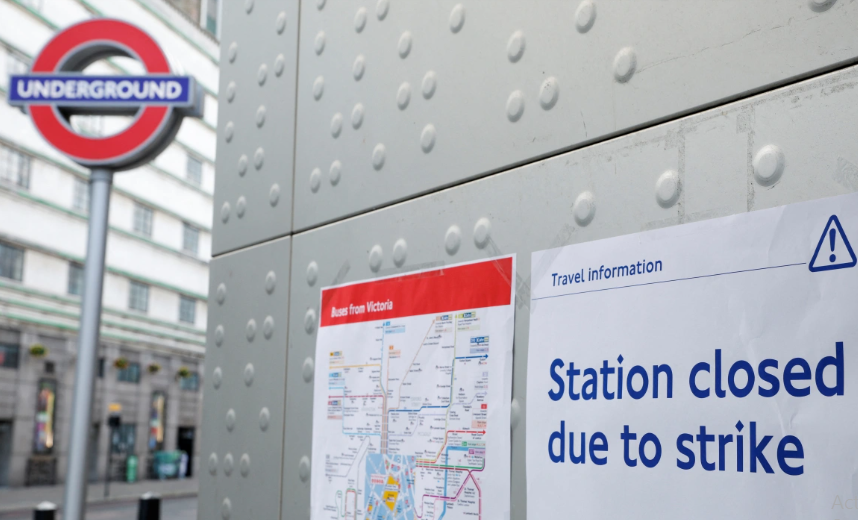Britain enters second day of rail strike after failed talks
After discussions between the RMT union and railway employers failed, the second day of rail strikes has begun.
-

Britain enters second day of rail strike after failed talks
After discussions between the Rail, Maritime, and Transport (RMT) union and railway employers failed, the second day of rail strikes has begun in London, UK.
The strike on Thursday is expected to have a similar impact as the one on Tuesday, with only 20% of services operating.
On Tuesday, the greatest strike in decades began, affecting millions of people. Another walkout is expected on Saturday.
The failure of negotiations between the RMT and train firms resulted in recriminations between the union and the government.
The RMT employees' union's general secretary, Mick Lynch, said Transport Secretary Grant Shapps "wrecked" discussions by refusing to allow Network Rail to retract its letter threatening redundancy for 2,900 of union's members.
Shapps dismissed the accusation as a "total lie," claiming that he had no participation in the letter.
The Department of Transport has stated that the rail sector is driving the discussions, however, a contract obtained by the BBC states that the handling of strike action by train operating firms is "subject to the secretary of state's direction."
Both parties in this issue assert that they felt progress was being made in recent days. However, the meetings on Wednesday failed to produce an accord. As things stand, a settlement to avoid the third strike on Saturday doesn't appear to be in the cards.
The RMT union claims it has urged Network Rail to remove its letter from Monday about proceeding with a formal consultation on changes to working procedures in maintenance teams, which would result in redundancy.
This was described as a "red herring" by a source at Network Rail, which maintains and runs the rails. They emphasized that the letter may be torn up if the union did not adequately negotiate the improvements.
There was no new wage offer on Wednesday. So far, both train operators and Network Rail have given an unconditional 2%, with an additional 1% conditional on adopting reforms they claim are required to modernize working practices.
The RMT is demanding a salary increase of at least 7% to counteract the cost of the living problem since inflation has reached 9.1% and is expected to reach 11% in the fall.
Employers have given a maximum of 3% in exchange for the union accepting new working methods.
However, train employers reported a loss of income, with passenger numbers barely at 80% of pre-pandemic levels.
The Rail Delivery Group, which represents train operators, stated that it aimed to provide "a fair deal on pay while taking no more than its fair share from taxpayers" which means modernizing the railway in order to bring customers back.
Tuesday, Boris Johnson urged the county to "stay the course" and resist the high prices that may drive inflation.

 3 Min Read
3 Min Read








